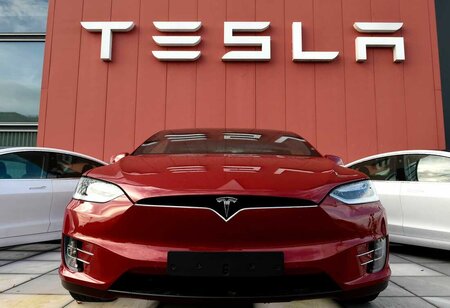Elon Musk Eyes Tesla Shift to Texas Following Compensation Blow in Delaware
By Consultants Review Team
 Tesla CEO Elon Musk expressed his dissatisfaction with Delaware, hinting at a potential relocation of Tesla to Texas following a setback in his $55 billion compensation package. Musk, displeased with legal challenges in Delaware, took to social media to advise against incorporating companies in the state. The comments followed a Delaware judge's decision to void Musk's 2018 pay package, the largest in US corporate history, due to alleged conflicts of interest and misleading disclosures.
Tesla CEO Elon Musk expressed his dissatisfaction with Delaware, hinting at a potential relocation of Tesla to Texas following a setback in his $55 billion compensation package. Musk, displeased with legal challenges in Delaware, took to social media to advise against incorporating companies in the state. The comments followed a Delaware judge's decision to void Musk's 2018 pay package, the largest in US corporate history, due to alleged conflicts of interest and misleading disclosures.
Delaware, the second-smallest US state, played a significant role in Musk's previous legal battles, including his failed attempt to retract a $44 billion offer for social-media platform Twitter Inc., now known as X. Musk's tenure at the helm resulted in a $25 billion loss in the company's value over the course of a year.
Musk's clashes with Delaware's legal system prompted him to criticize the state's primary industry—being the corporate home for nearly 70% of Fortune 500 companies. Delaware's incorporation fees contributed over $2 billion to the state's revenue in 2022, constituting about a quarter of its annual budget.
Jill Fisch, a University of Pennsylvania law professor, noted Musk's discomfort with being held accountable in Delaware, emphasizing the state's courts' reputation for regulating the actions of controlling shareholders.
Elon Musk's aversion to Delaware is evident in his decision to move Twitter's state of incorporation to Nevada, where corporate laws provide greater protection against investor suits. Musk highlighted states like Nevada and Texas as more favorable for letting shareholders decide corporate governance matters such as pay packages. Tesla is currently headquartered in Texas.
While other companies, including TripAdvisor, contemplate relocating to Nevada, some shareholders oppose the move, arguing that such states have corporate liability laws that could harm investors in a "race-to-the-bottom" scenario.




